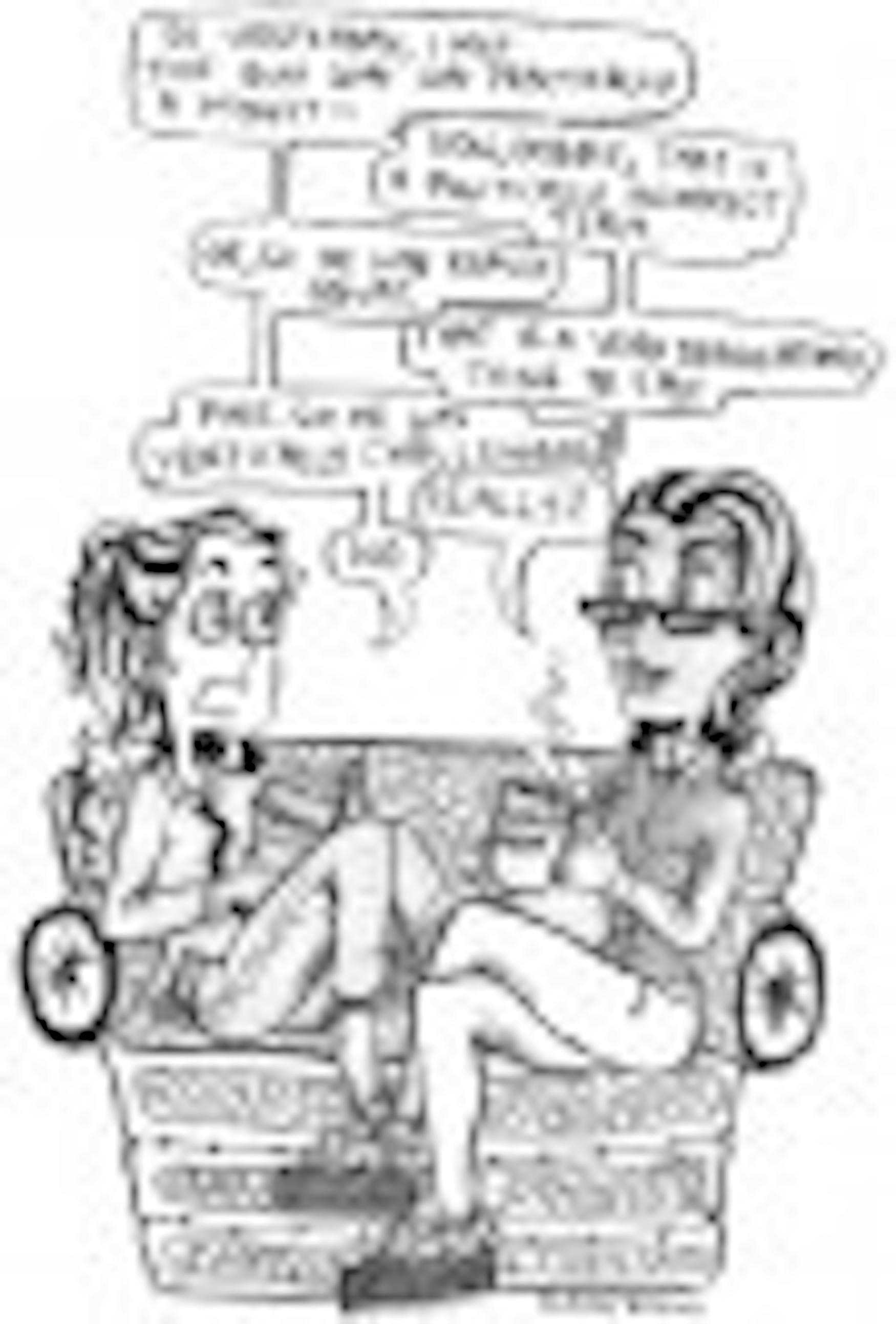Political correctness is unhelpful
Unlike high school, where teachers cling to the belief that students are chronically impressionable to others' opinions, college offers a platform for students and professors alike to discuss their ideas and opinions openly. However, the growing fad of excessive political correctness on college campuses is threatening the candidness of this platform and effectively muzzling academic voices. By threatening free speech at universities, we also eliminate the possibility of ever actually understanding the issues we're avoiding. Political correctness forms a dual reality that nurtures the gap between what we mean and what we say. Never have our words been so carefully chosen as to avoid controversy and discontent while encouraging artificial dispositions.
According to a survey conducted in 176 colleges by the Foundation for Individual Rights in Education, 76 schools restrict speech that would otherwise be unrestrained off campus. Among those 76 is the University of California, Santa Cruz, which prohibits any speech that is disrespectful to others, like the disparagement of one's political views. Intellectual discussions should not be hampered by the possibility of offending someone. True, we should always follow normal rules of social decorum and common sense. But when talking about delicate issues, the classroom is the ideal place to have such discussions.
Some universities, such as UC Santa Cruz, have wrongly instituted "speech codes." FIRE defines a speech code as any type of campus policy that punishes, regulates or represses speech that would be protected by the government. They consider the suppression of these fundamental rights on college campuses, usually as a result of extreme political correctness, as a violation of professors' and students' civil liberties.
In fall 2007, Brandeis encountered one such violation with regards to an incident surrounding Prof. Donald Hindley (POL). In a course about Latin American politics, Hindley allegedly described to his class that Mexican immigrants are sometimes referred to as "wetbacks." An offended student complained and consequently the University responded with a letter notifying Hindley that he had violated the school's "Non-Discrimination and Harassment Policy."
According to the policy available online, the school strives to "be free from discrimination and harassment on the basis of race, color, ancestry, religious creed, gender identity and expression, national or ethnic origin, sex, sexual orientation, age, genetic information, [and] disability." In the end, the Committee on Faculty Rights and Responsibilities determined that the administration abused its power and violated Hindley's academic freedom (Though Provost Marty Krauss overturned the decision and closed the case).
While the intention of this policy is commendable, its execution in Hindley's case shows a gross miscalculation of the administration's interpretation of harassment. For these actions, the University has been put on FIRE's Red Alert List. According to the organization's website, the Red Alert List is a compilation of schools with "severe and ongoing disregard for the fundamental rights of their students or faculty members." Although FIRE claims on its website that it contacted University President Jehuda Reinharz multiple times, Reinharz has supposedly yet to reply once to its pleas to acknowledge the wrongful violations against Hindley.
Taking a statement out of context where the professor was clearly attempting to educate the students of a historical fact and then proceeding to use that statement to penalize the individual indicates that extreme political correctness is unfortunately penetrating the membrane of this university. If Hindley had chosen to avoid using the word or any ethnic slur, the students' education would have been hindered, and the very real issues of nativism and racism would not have been discussed.
That being said, our school shouldn't be written off so rashly for this one faltering incident of political correctness gone awry. Despite the reputation of being ideologically homogeneous, the invitations from various on-campus groups to Prof. Noam Chomsky, Prof. Bill Ayers and Israeli Ambassador to the United States Michael Oren show that the University is dedicated to upholding the academic rights of its faculty and student bodies. Knowing that Chomsky's speech would create controversy and that Oren's commencement address would cause tension but still allowing the discussions to take place indicates that we're not afraid to talk about these provocative and sensitive issues.
When Iranian President Mahmoud Ahmadinejad spoke at Columbia University in 2007, he caused the entire country to turn and glare at the school for inviting the bigot, anti-Zionist and known Holocaust denier to speak. However, the purpose of inviting the Iranian president wasn't to create controversy or to ridicule him, as Lee Bollinger, current president of Columbia University, did in his frank opening remarks at the event. The purpose was to ask the difficult questions and challenge Ahmadinejad about why he believes what he believes.
Inviting the president of Iran is certainly an extreme example in rejecting excessive political correctness. However, the essential idea of having a discussion is the crux of a college classroom experience. Being politically correct doesn't eliminate the offensive mistakes we're trying so desperately to avoid; it merely masks them. By opening up the forum to discuss controversial issues of race, religion, nationality, gender, etc. in an intellectual environment, we eradicate the fear of offending each other and really begin to understand the issues at stake.



Please note All comments are eligible for publication in The Justice.